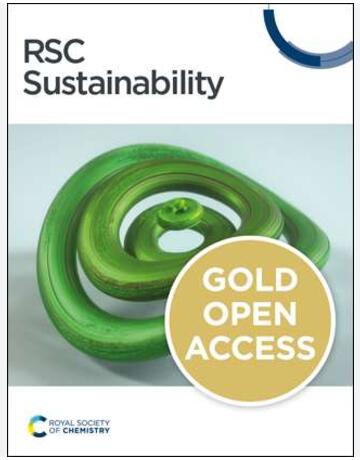加贝斯湾(突尼斯)的幽灵渔具:制定保护行为守则的迫切需要
IF 3.3
3区 环境科学与生态学
Q2 ENVIRONMENTAL SCIENCES
引用次数: 0
摘要
加贝斯湾位于突尼斯南部沿海,是一个具有重要生态和经济意义的地区,但它却面临着被遗弃、丢失或以其他方式丢弃的渔具(俗称 "幽灵渔具")所带来的日益严重的威胁。本文探讨了制定全面保护行为准则的迫切需要,以减轻幽灵渔具对海洋生态系统和当地社区的影响。根据生命 MedTurtles 和 MedBycatch 项目的数据和见解,以及与当地利益相关者的磋商,我们提出了一套适合突尼斯特定社会经济和政治背景的原则和指导方针。我们的研究结果表明,幽灵渔具不仅危害海洋生物多样性,还影响当地渔民的生计和该地区渔业的可持续性。拟议的行为准则强调了政府、当地社区和非政府组织在实施有效管理战略中的作用。我们还探讨了建议措施与现有国际法律和政策的协调问题,以确保在加强全球保护工作的同时不会产生冲突。本文最后强调了建议的守则在突尼斯背景下的可行性,并指出了其实施过程中可能遇到的挑战和机遇。我们的建议旨在促进以合作的方式管理幽灵渔具,为加贝斯湾的长期可持续发展做出贡献,并为全球类似地区树立典范。本文章由计算机程序翻译,如有差异,请以英文原文为准。
Ghost Gear in the Gulf of Gabès (Tunisia): An Urgent Need for a Conservation Code of Conduct
The Gulf of Gabès, located off the southern coast of Tunisia, is a region of significant ecological and economic importance, yet it faces a growing threat from abandoned, lost, or otherwise discarded fishing gear, commonly known as ghost gear. This paper addresses the urgent need for a comprehensive conservation code of conduct to mitigate the impacts of ghost gear on marine ecosystems and local communities. Drawing on data and insights from the Life MedTurtles and MedBycatch projects, as well as consultations with local stakeholders, we propose a set of principles and guidelines tailored to the specific socio-economic and political context of Tunisia. Our findings indicate that ghost gear not only endangers marine biodiversity but also affects the livelihoods of local fishers and the sustainability of the region’s fishing industry. The proposed code of conduct emphasizes the roles of government, local communities, and non-governmental organizations in implementing effective management strategies. We also explore the alignment of the proposed measures with existing international laws and policies, ensuring no conflicts arise while reinforcing global conservation efforts. This paper concludes by highlighting the feasibility of the proposed code within the Tunisian context, identifying potential challenges and opportunities for its implementation. Our recommendations aim to foster a collaborative approach to managing ghost gear, contributing to the long-term sustainability of the Gulf of Gabès and serving as a model for similar regions worldwide.
求助全文
通过发布文献求助,成功后即可免费获取论文全文。
去求助
来源期刊

Sustainability
ENVIRONMENTAL SCIENCES-ENVIRONMENTAL SCIENCES
CiteScore
6.80
自引率
20.50%
发文量
14120
审稿时长
17.72 days
期刊介绍:
Sustainability (ISSN 2071-1050) is an international and cross-disciplinary scholarly, open access journal of environmental, cultural, economic and social sustainability of human beings, which provides an advanced forum for studies related to sustainability and sustainable development. It publishes reviews, regular research papers, communications and short notes, and there is no restriction on the length of the papers. Our aim is to encourage scientists to publish their experimental and theoretical research relating to natural sciences, social sciences and humanities in as much detail as possible in order to promote scientific predictions and impact assessments of global change and development. Full experimental and methodical details must be provided so that the results can be reproduced.
 求助内容:
求助内容: 应助结果提醒方式:
应助结果提醒方式:


